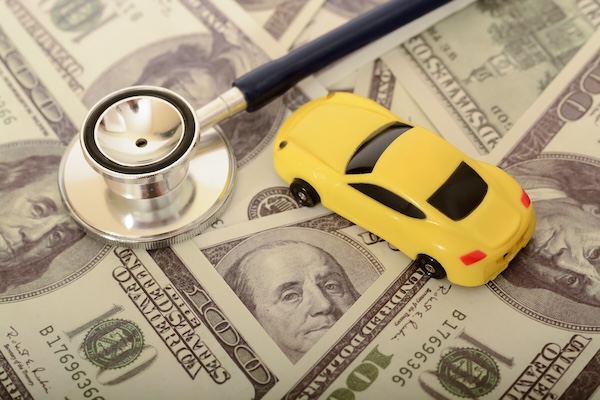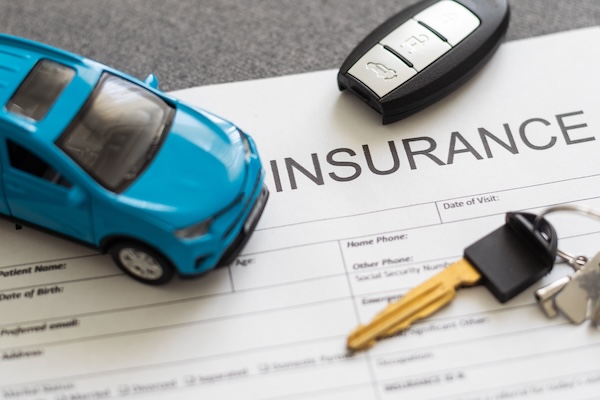What Do I Do If My Medical Bills Are More Than My Car Accident Settlement?
Being involved in a car accident can leave you facing a number of challenges, from dealing with painful injuries to managing overwhelming medical bills. The physical and emotional toll of an accident is already stressful, and when the financial strain of medical expenses is added, it can feel like you’re drowning.
One of the most common concerns car accident victims have is: what if my medical bills are more than my settlement after a car accident? Unfortunately, this is a reality for many individuals, especially when unexpected medical complications arise or if the initial settlement doesn’t fully account for the extent of your medical costs.
With medical treatments, ongoing therapies, and potential future care, the expenses can quickly exceed what you’ve been offered in your personal injury settlement. But all is not lost—there are steps you can take to handle excess medical bills and reduce the financial burden. Whether it’s negotiating with healthcare providers, utilizing insurance options, or seeking legal advice from a car accident lawyer, you don’t have to face this challenge alone.
Understanding Why Your Medical Bills Might Exceed Your Settlement
After a motor vehicle accident, you may receive a personal injury settlement to cover your medical expenses, lost wages, and pain and suffering. However, it’s important to understand that the settlement you receive may not be enough to fully cover all your medical bills, especially in complex or serious injury cases.
Why Medical Bills Can Exceed Your Settlement:
- Extensive Medical Treatment: If your injuries require surgeries, long-term rehabilitation, or ongoing medical care, the costs can quickly accumulate. These expenses can exceed the original estimate used during settlement negotiations.
- Future Medical Expenses: In some cases, you may need medical treatment down the line that wasn’t initially anticipated. For example, ongoing therapy or future surgeries might add to your medical costs, leaving you with additional bills that weren’t covered in the settlement.
- Insurance Policy Limits: The at-fault party’s insurance company may offer a settlement based on their liability insurance, but these limits may not cover the full extent of your medical expenses. The insurance company may offer a quick settlement, but it might not account for your long-term needs.
- Underestimated Settlement Offers: Often, insurance companies will offer settlements quickly, trying to resolve the case without fully accounting for future treatment. While this might seem tempting, the amount they offer could fall short when it comes to covering overwhelming medical bills or excess medical bills.
Challenges with Insurance Coverage:
- Even if you have personal injury protection or medical payments coverage through your auto insurance policy, this may not be enough to cover all of your medical bills.
- The settlement provided by the insurance company might not take into account future medical treatment or future medical expenses, especially if your injuries are severe.
In such cases, you may find yourself dealing with unpaid medical bills or having to find ways to negotiate medical bills in order to reduce your financial burden. Understanding these potential gaps in coverage is essential for managing your health and finances after an accident.
What Are My Options When My Medical Bills Are More Than My Car Accident Settlement?
Negotiate With Medical Providers
If your medical bills exceed your settlement amount, one of the first steps to take is to negotiate medical bills directly with your healthcare providers. Many medical providers are willing to work with personal injury victims who are facing unpaid medical debt. You may be able to negotiate medical bills down or set up a payment plan that allows you to pay your medical bills over time, without risking your financial stability.
Hospitals and doctors know that personal injury cases often result in unexpected medical expenses, and some providers are open to reducing the overall amount you owe, especially if you explain that you’re awaiting a settlement.
Utilize Your Health Insurance
If you have health insurance, it can help cover some of your medical costs while you await a settlement. Health insurance coverage can significantly reduce the total amount of medical debt you face. However, keep in mind that your health insurance provider may seek reimbursement from your personal injury claim once your settlement is paid out.
This is particularly relevant for personal injury victims who have medical payments coverage or personal injury protection (PIP) as part of their auto insurance policy. This type of coverage is designed to cover immediate medical expenses after a car accident, even before a settlement is reached.
While this can help pay some medical bills, it’s important to understand how your health insurance provider may interact with your personal injury settlement.
Consult With an Experienced Personal Injury Attorney
If your settlement doesn’t fully cover your medical expenses, you may want to consult with an experienced personal injury attorney. An experienced personal injury lawyer can help you negotiate for a higher settlement or even pursue additional compensation through personal injury litigation. They can assist in evaluating the medical records to determine if future medical expenses were adequately considered in the settlement offer.
Your personal injury attorney can also help you seek additional compensation from other parties, such as through underinsured motorist coverage or by pursuing claims against the responsible party’s liability insurance. Often, settlement negotiations can result in a fairer settlement that takes into account your ongoing medical needs.
Look Into Underinsured Motorist Coverage
If the driver responsible for the accident had minimal coverage, you may be able to make a claim under your own auto insurance policy through underinsured motorist coverage. This coverage is designed to cover the gap when the other party’s insurance isn’t sufficient to cover your medical bills. Underinsured motorist coverage could help cover those excess medical bills that exceed your settlement amount.
This option may provide the financial relief you need to avoid struggling with unpaid medical bills while still working through the legal process of your personal injury claim.
Mediation or Arbitration: A Path to Resolution
If you’re not able to reach an agreement with the insurance company, consider settlement negotiations through mediation or arbitration. These forms of alternative dispute resolution can help resolve the issue without the need for costly and time-consuming court proceedings. A personal injury lawyer can help you explore these options and determine whether they might work in your case.
In personal injury cases, mediation and arbitration are typically quicker and less expensive than formal lawsuits, but they still offer the potential to secure additional compensation to help cover your medical expenses.
Could Bankruptcy Help With Overwhelming Medical Bills?
If your medical debt has become too overwhelming and you’re unable to pay your medical bills, bankruptcy may seem like a last resort. However, this is a drastic step and should only be considered after all other options have been exhausted. Before considering bankruptcy, consult with a financial professional or personal injury attorney who can help you assess the best course of action.
Filing for bankruptcy could affect your ability to recover from your personal injury incident, so it’s important to seek legal counsel to explore all possible avenues for resolving your debt.
How to Ensure Your Settlement Accounts for Future Medical Expenses
One of the biggest concerns when dealing with a personal injury settlement is whether it will adequately cover not only your current medical bills but also your future medical expenses. Unfortunately, many insurance companies or settlement offers don’t fully account for the long-term costs associated with serious injuries, especially if ongoing treatment or rehabilitation is needed.
If your injuries require long-term care, it’s important to ensure that the settlement reflects these future needs. Here’s how to ensure that your personal injury settlement covers both current and future medical treatment:
Work with Your Personal Injury Attorney
An experienced personal injury attorney can help calculate and estimate the costs of future medical care, ensuring that the settlement amount includes those needs. Your attorney can collaborate with medical professionals to assess how long-term care will impact your life and help present this information during settlement negotiations.
Get a Detailed Prognosis and Medical Records
In personal injury cases, having thorough documentation of your injuries and the treatment you’ve received is essential. This includes medical records, doctor’s notes, and a detailed prognosis from your healthcare provider regarding any future treatment needs. This documentation will support your case and be crucial in ensuring the settlement considers your future medical expenses.
Consider the Full Impact of Your Injuries
If your injury affects your ability to work or requires regular follow-up appointments or surgeries, these costs must be factored into your settlement. Along with medical expenses, lost wages, and pain and suffering, future medical costs should be prioritized during settlement negotiations. Taking a full look at the ongoing impact of your injuries can help secure a more comprehensive settlement.
Don’t Settle Too Quickly
Many insurance companies push for a quick settlement to avoid a lengthy legal process. However, settling too early might result in a settlement that doesn’t fully cover future medical expenses. It’s crucial to consult with your personal injury attorney before agreeing to any offer. Rushing into a settlement may leave you with unpaid medical bills or gaps in coverage for future care.
Explore Other Compensation Options
In addition to the personal injury settlement, there may be other sources of compensation available, such as underinsured motorist coverage, medical payments coverage, or state-run assistance programs. Your attorney can help you explore all potential sources of compensation, ensuring that you receive the maximum possible settlement to cover your medical expenses.
By ensuring that future medical expenses are properly addressed during settlement negotiations, you can protect your financial future and avoid the burden of additional medical bills later on.
Frequently Asked Questions (FAQ)
What should I do if my medical bills exceed my car accident settlement?
If your medical bills exceed your settlement, it’s important to take action. First, consider negotiating medical bills with your healthcare providers to reduce costs or set up a payment plan. You can also explore options like using health insurance, filing for underinsured motorist coverage, or consulting an experienced personal injury attorney to see if there are additional avenues to seek compensation.
How can I reduce my medical bills after a car accident?
You can try negotiating medical bills directly with your healthcare providers. Many providers are willing to reduce the total amount owed or offer payment plans if you explain your financial situation. Additionally, you may be able to leverage your health insurance to reduce the overall cost of medical expenses.
Does my health insurance cover all my medical expenses after a car accident?
Your health insurance can help cover some of your medical expenses, but it may not cover everything. Depending on your plan, your health insurance provider might seek reimbursement from your personal injury settlement. In some cases, the settlement may not be enough to fully cover your medical bills, especially for future medical care.
How can a personal injury attorney help with excess medical bills?
A personal injury attorney can assist you in negotiating a larger settlement that better accounts for your medical expenses. They can help you identify additional compensation opportunities, such as underinsured motorist coverage, and guide you through personal injury litigation if necessary to ensure you receive the compensation you deserve.
What is underinsured motorist coverage, and how can it help with my medical bills?
Underinsured motorist coverage is a type of coverage provided by your own auto insurance policy. If the at-fault driver’s insurance is insufficient to cover your medical bills, this coverage can help make up the difference. If you have underinsured motorist coverage, it may assist in covering excess medical bills that exceed the other driver’s insurance payout.
Can I file for bankruptcy to get rid of medical debt from a car accident?
Bankruptcy is a last resort and should only be considered after all other options have been exhausted. While bankruptcy may help reduce unpaid medical debt, it can have long-term financial consequences. It’s important to speak with a financial advisor or personal injury attorney to understand your options before going down this path.
You Don’t Have to Face Excess Medical Bills Alone
If you’re asking, what if my medical bills are more than my settlement after a car accident?, remember that you have options. From negotiating with healthcare providers and utilizing your health insurance to consulting an experienced personal injury attorney, there are effective ways to manage and reduce your medical costs.
If you’re struggling with unpaid medical bills or excess medical bills after a car accident, it’s crucial to take proactive steps to minimize the impact on your finances. Personal injury victims should never feel trapped by overwhelming medical bills. At Mogy Law Firm, we’re here to help you navigate this complex situation and secure the compensation you deserve.
Reach out to us today for a free consultation and to discuss your legal options. Don’t wait—contact us at (901) 443-9133 to get started on protecting your financial future. We’re here to support you every step of the way.









